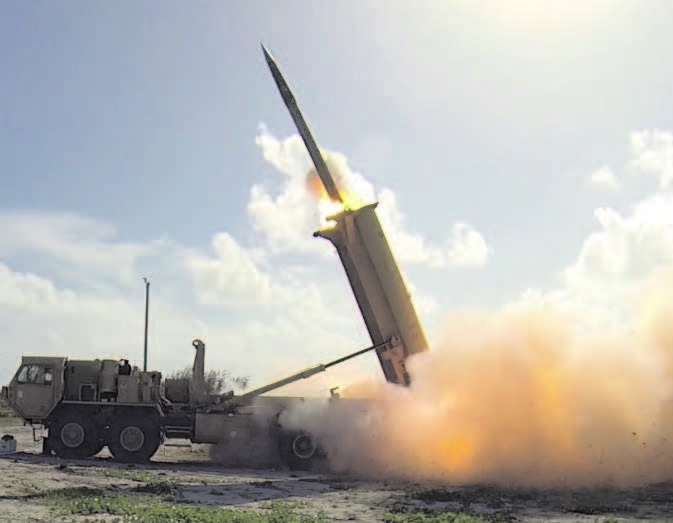SEOUL (TIP): South Korea on sept 30 formally announced a new location for deploying a North Korea-focused US anti-missile defence system, after vocal protests from local residents over potential health and environmental hazards.
Seoul and Washington agreed to deploy the Terminal High Altitude Area Defense (THAAD) system in the South after North Korea conducted a series of missile tests in the wake of its fourth nuclear test in January.
The decision was condemned by Pyongyang and also caused a damaging rift between Seoul and Beijing, which sees the deployment as a US bid to flex its military muscle in the region and undermine China‘s own missile capabilities.
There was also a strong domestic reaction in South Korea, particularly from people living near an existing missile base in the rural county of Seongju — 275 kilometres southeast of Seoul — where the first THAAD battery was to be installed.
Residents said the system’s powerful radar would pose health and environmental hazards and argued that its presence would make them a priority target for the North Korean military.
The defence ministry said on Friday that the site would be shifted 18 kilometres to the north of the air base to a golf course owned by the giant Lotte Group retail chain.
The ministry said the new site was more isolated and located on higher ground, but nearby residents have still been protesting since news of the venue switch was leaked weeks ago.
And followers of an indigenous school of Buddhism are also angered by the move, which would see the THAAD battery sited just three kilometres from one of their most important shrines.
About a thousand Won-Buddhism followers held an outdoor prayer session at the shrine on Wednesday to protest the deployment.
Some opposition lawmakers are also opposed to THAAD, despite President Park Geun-Hye’s insistence that the system is crucial to national defence.
Since Seoul and Washington announced the THAAD deployment was going ahead, North Korea has continued to conduct missile tests and carried out a fifth nuclear test on September 9. (AFP)
